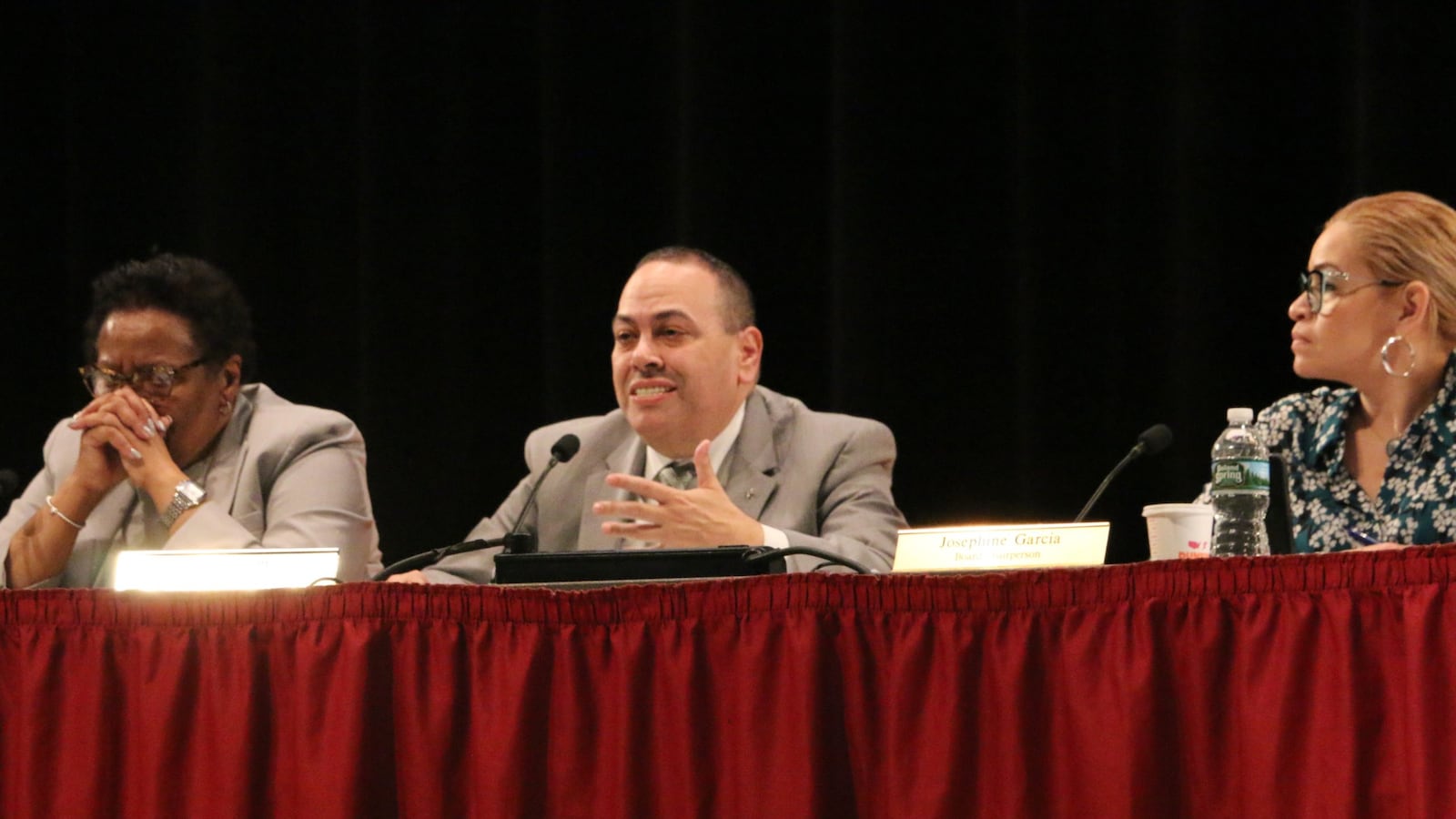The state has agreed to give Newark an extra $4 million for its schools this year — a tiny fraction of the nearly $37 million the district sought.
Newark requested the “emergency aid” in August, saying it needed extra dollars to pay for teacher salaries, textbooks, and school repairs such as asbestos removal and new fire alarms.
But in a letter to the district on Friday, the state insisted that Newark could cover most of those costs itself by tapping unused funds from last school year and further raising local taxes. The only expense the state agreed to cover was $3.9 million to remove asbestos from school buildings.
Newark wasn’t alone in asking for more money — and getting a disappointing response.
Thirty-four districts requested nearly $363 million in additional state aid this year to make up for funding shortfalls. After reviewing the applications, the state education department agreed to grant just 4% of the requested aid. That amounts to $15 million for 13 districts, including Newark, officials said on Friday.
The department conducted a “thorough and detailed” review of each application, department spokesman Michael Yaple said in a statement, adding that Camden’s application is still under review and districts can reapply for extra funding later this year if “circumstances change.”
“We are confident that these awards will allow those districts to provide quality educational services to their students,” he said.
The state provides a limited number of emergency grants each year to help districts cover costs that exceed their budgets, which include local, state, federal, and some private funds. Once used to assist with natural disasters, such as Superstorm Sandy, the emergency aid has increasingly gone to districts looking to plug holes caused by state funding cuts.
The cuts are the result of a multi-year effort by Gov. Phil Murphy and lawmakers to more equitably distribute the state’s education dollars. Since 2018, the state has slashed payments to districts it deemed are overfunded — according to a state formula — and boosted aid to districts that have historically received less than their due.
The revamped budgeting process hiked Newark’s state funding by 3.15% this school year. Yet that increase still falls $174 million short of what Newark is owed according to the state’s own school-funding formula, which has not been properly enacted for years.
So in August, Newark applied for $36.7 million in emergency aid. The district said it needed the extra money for two reasons: Its state-funding boost this year was smaller than last year, and the city’s charter schools could eat up a larger chunk of the district’s budget than was initially expected. (In New Jersey, charter school funding flows through district budgets.)
As a result, “the district was forced to make $12.7 million in cuts in order to balance the budget and avoid hundreds of layoffs,” Newark Superintendent Roger León wrote to the state education commissioner in August. The cuts included 17 teaching positions, a new science curriculum, a high school renovation, and asbestos removal at Hawkins Street School, according to the letter.
“If we do not receive the $36.7 million, the district’s inability to implement its educational programs will directly impact the students’ classroom experiences,” León wrote. “Also we will not be able to meet our financial obligations to the charter schools.”
In a letter dated Dec. 6, State Education Commissioner Lamont Repollet said the district’s original application for the emergency aid was incomplete and the Newark school board had failed to approve it before the due date. Nevertheless, he wrote, the state still thoroughly reviewed the application and related financial documents to determine whether Newark truly needed the extra money.
The state decided it did not. Among the reasons cited in Repollet’s letter: The district’s budget appears to have a $13 million surplus. Newark can continue raising local taxes. The district still has some emergency aid left over from last school year. And the district has a history of overestimating its annual expenses, suggesting its actual shortfall may not be as large as projected.
A district spokesperson did not respond to requests for comment on Monday.
But León has previously defended the request for extra state aid. During a panel discussion in September, he insisted that the district had taken careful steps to balance the budget despite a “structural deficit” that predated his administration. In addition, Newark voters already approved a 2% property tax hike this year to help fund the city’s schools.
“We actually need additional dollars to assist us in doing some of the magic that I know will happen” in the district, León said during the talk, which was broadcast on WBGO 88.3 FM. “And it will happen when dollars are actually attached.”

